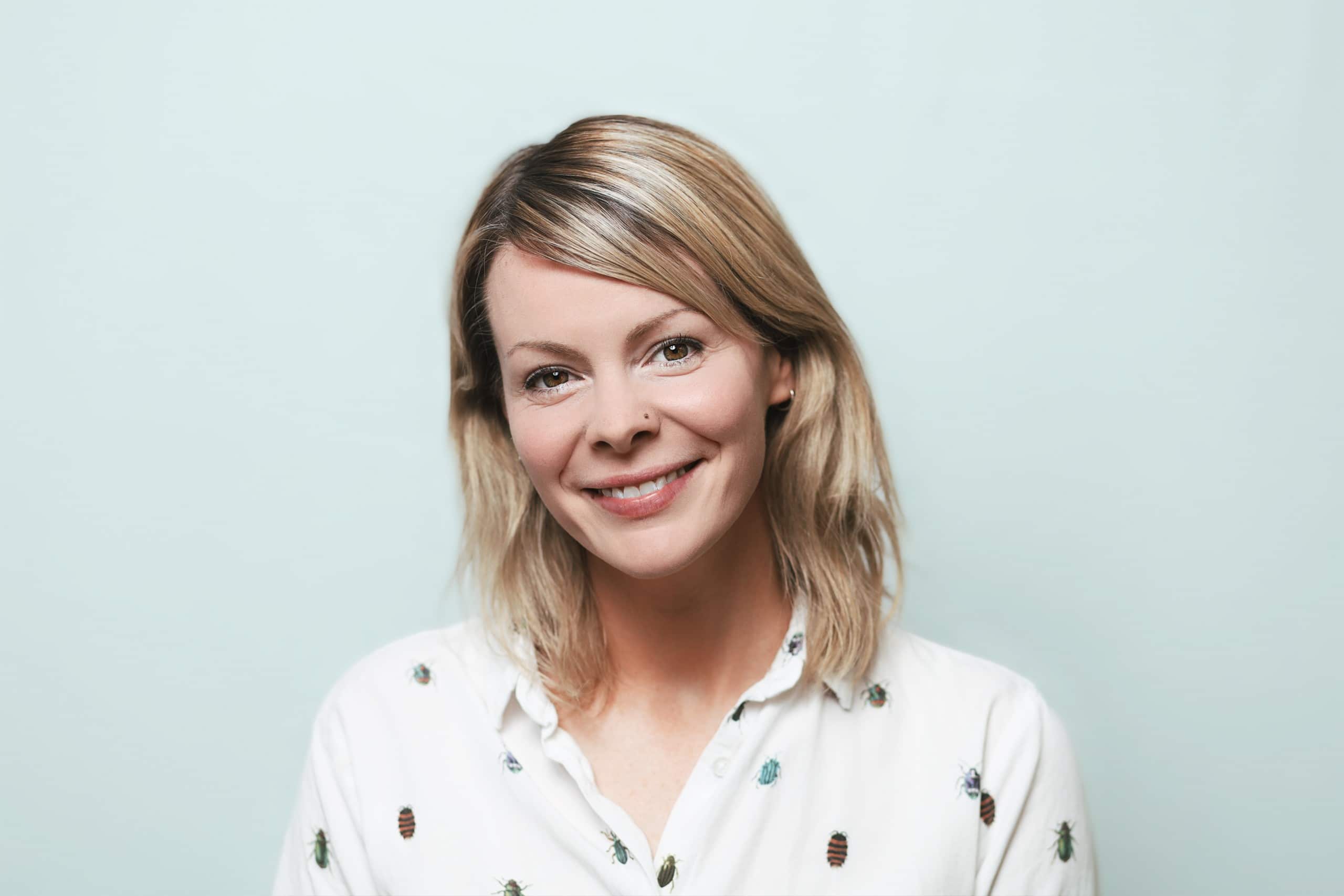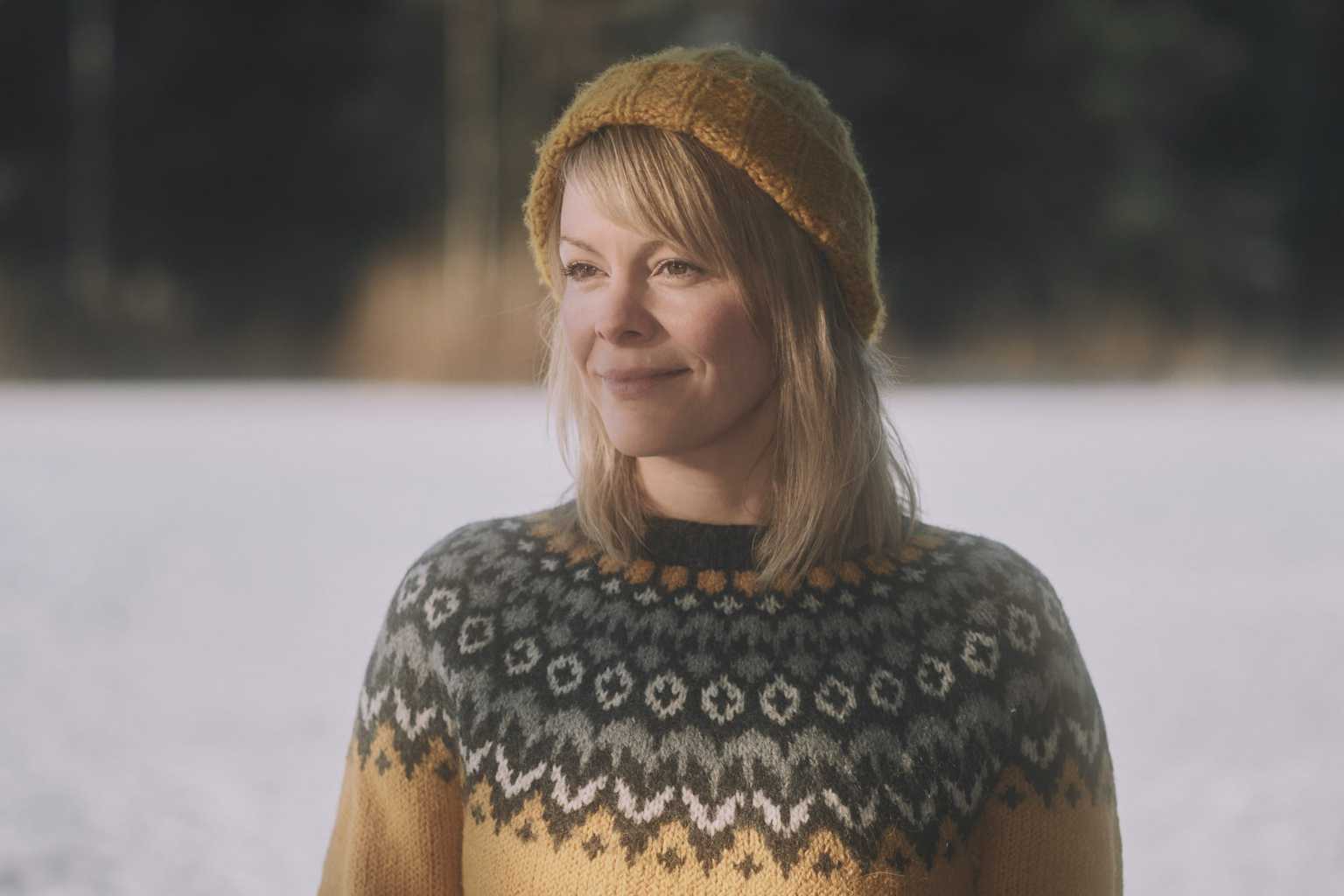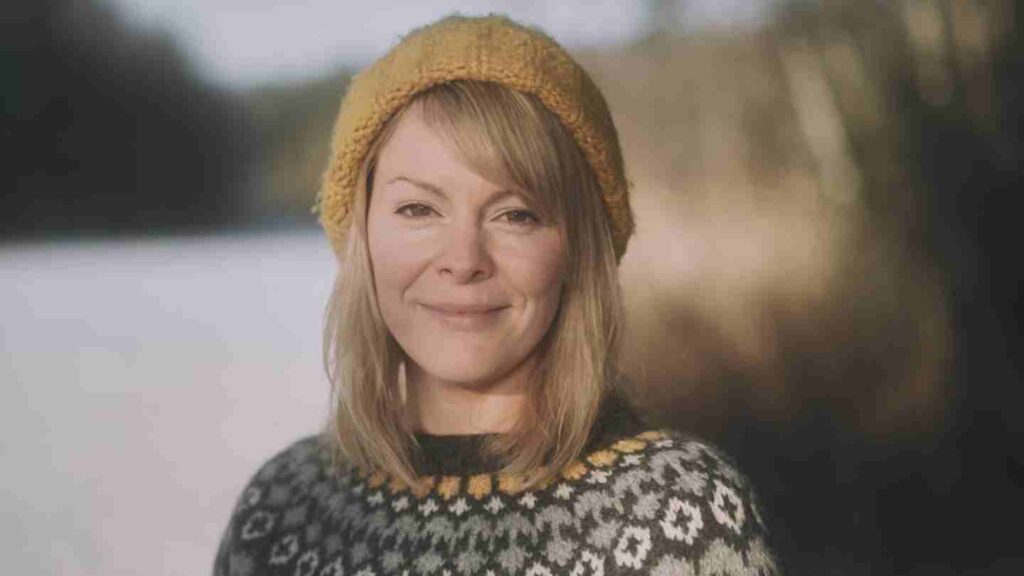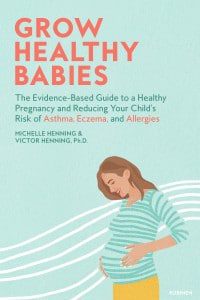Michelle Henning is a Nutrition & Health Coach, writer, and IINH graduate based in Oslo. Her articles have been featured in WIRED Magazine, Pathways to Family Wellness, BabyCenter, and many other outlets. Together with her husband, Dr. Victor Henning, she has just published her first book Grow Healthy Babies: The Evidence-Based Guide to a Healthy Pregnancy and Reducing Your Child’s Risk of Asthma, Eczema, and Allergies. Michelle is also on the Scientific Advisory Board and health coaching study participants, for the PREVENT study aiming to further understand the connection between the gut microbiome during the first years of life and lifestyle, wellbeing and health in Sweden.
When did you first become interested in nutrition and health?
I fell in love with food when I was a little child. My family lived in a tiny house in the back of my parents’ seafood restaurant down by the coast in Wexford. I walked freely in and out of the kitchen like it was my living room. I have strong memories of sitting on the countertop next to my dad preparing meals, and him letting me taste the different sauces. The other chefs fed me brown bread ice cream. My dad had such a deep passion for food that it was infectious! We made a habit of strolling through villages and towns and reading restaurant menus and delighting in the descriptions of new dishes. As I got older, I helped my parents with their home catering business, plating up food and talking to people.
At the same time, I hated school, which was run by a Catholic convent. It was rigid and uninspiring, so I rebelled and skipped classes and frequently got in trouble. When the nuns had had enough, I was asked to leave. I had to finish my final year of secondary school by taking two-hour bus rides to Dublin. It was there, during my leaving cert year, I fell in love with food science and biology,
So what made you decide to study with IINH?
I had originally signed up with another college, but then the IINH was launched! The curriculum appealed to me much more, and I eventually switched over to IINH to study Nutritional Therapy. So I was part of one for the first classes there back in 2005! I had such a wonderful experience there and felt very supported and happy. Later, in 2012, when I was living in London and wanted to return to studying nutrition, coming back to IINH was the logical choice for me.
You took a detour into another career, then?
I did! I soaked up every moment of my studies at IINH – but at the same time, I had always loved singing. My parents had given me a tape recorder when I was a child, and I was always making up lyrics and melodies. When I had the opportunity to move to Paris and sing in a band professionally, I grabbed it and settled into a life as singer/songwriter, touring all over France and playing festivals in the UK and Ireland. I even made an appearance on the Late Late Show!
I never lost my passion for food, though. I worked part-time in a Parisian café called La Petite Cantine. I watched and learned and fell in love with all the traditional French recipes, some of which I still cook today. I occasionally wrote guest articles for a French food blog, and I also contributed an article called “Eat Yourself Smart” to WIRED Magazine. After I met my now-husband, Victor, and moved in with him in London, I decided to resume my nutrition studies and enrolled at IINH again.
You and your husband Victor have written a book together, Grow Healthy Babies. Can you tell us a bit about that?
Victor and I compliment each other beautifully – with our allergies. Between the two of us, we suffer from pretty much every chronic condition you can imagine: Various food and environmental allergies, asthma, eczema, and autoimmune issues. So when we decided to try for a baby, we poured ourselves into researching what we might do to lower our baby’s risk of these chronic illnesses.
I had the nutrition background from IINH, and Victor had just completed a PhD on the role of emotions in decision-making, had co-authored chapters in statistics textbooks, and published in leading academic journals. We systematically combed PubMed, the medical database, for studies that showed any link between nutrition, lifestyle, environmental factors, and children’s risk of developing asthma, eczema, and allergies. What we found was that – by making relatively simple changes to your diet and lifestyle – you can reduce a child’s risk for these conditions significantly, perhaps by as much as 80-90 percent!
We thought that we should share this information and hopefully help as many other parents as we could! So we wrote Grow Healthy Babies: The Evidence-Based Guide to a Healthy Pregnancy and Reducing Your Child’s Risk of Asthma, Eczema, and Allergies. You can find links to print, e-book, and soon audiobook versions at your favourite bookstore via our website, https://www.growhealthybabies.
My proudest moment was when Richard Burton, the founder of IINH, wrote to me and said: “This is something that everyone planning a family urgently needs to read. It goes straight to the top of my recommended book list for our students!”
Can you give us a very short preview of the book? What are the most important things that expecting parents can do to prevent asthma, eczema, and allergies?
For mothers, it mostly comes down to one thing: Minding your microbiome – that is, the friendly bacteria in your gut! Your microbiome is passed on to your child via birth and breastfeeding and then plays a crucial role in programming your baby’s immune system. So what do you do to take care of your gut bacteria? As we say in the book, “your diet is the steering wheel for your microbiome”. The foods you eat determine what type of bacteria thrive in your gut, and the friendly ones you want are fed by a diet rich in plants, anti-oxidants, and healthy fats like olive oil, avocado, and fish. The easiest and yummiest way to achieve this is to follow a Mediterranean style diet! You can also boost your microbiome with fermented foods and drinks, as well as prebiotic and probiotic supplements and certain vitamins like vitamin D.
Of course, there are many other things that you can do to reduce your baby’s risk of chronic diseases, and we lay them all out in the book. The key is to start somewhere and not get overwhelmed. Just do what you can; every little bit you can do that nudges you towards better health is worth it!


Your daughter is 6 years old now. In general, how do you teach kids to eat healthy?
Oh, this is an interesting question – I’m still learning every day. I read a wonderful book called First Bite: How We Learn to Eat by Bee Wilson when my daughter was a baby. It helped me understand our emotional connection to food and how we as parents can shape it. I have always respected my daughter’s appetite and told her from a young age to feel her belly and decide if she’s full. I always offer new foods and encourage a taste but never force it. It’s always up to her how much she eats. I don’t get deterred if she doesn’t like a food on the first try, I just keep offering it as part of our family meals and, in time, she eventually chooses to taste it and loves it. Although not always – she is still not convinced about cooked carrots!
We talk to her about how food affects the body and the microbiome, and we read fun books on the topic. Most importantly, I keep sugary foods out of the house and only offer treats that are lower in sugar. I don’t say no to sweets at parties, but at home I try to shape her tastebuds into preferring savoury or complex flavours. We always have fun with food and make our own versions of ‘treats’, so she has never felt deprived of having these kinds of things. For example, we only ever offered her dark chocolate, so her favourite is 85% dark choc! She loves sauerkraut, garlic beans, spicy food, seaweed snacks, and kombucha. I’ve simply tried to foster a love of good whole food with my daughter, with the same enthusiasm that my dad has for food and cooking.
You live near Oslo now. How open and aware are Norwegian people around you to the importance of nutrition and taking responsibility for their health?
In general, what I have observed in Norway is that a lot of older food traditions are living on. Sauerkraut is traditional with Christmas dinner. Milk kefir and sourdough bread are common and available in nearly every supermarket. In general, the bread here is darker and more wholegrain than I was used to in Ireland! There are still many traditional fermented foods eaten. There’s a great love of the outdoors, and families are spending time in nature no matter the weather. Children hike and ski from a young age. We think it’s wonderful living here!
What is your personal nutrition philosophy?
Growing up with asthma, allergies and eczema, I generally focus on reducing inflammation in my body and keeping my gut microbiome healthy and happy. I think Michael Pollan put it best: “Eat food, not too much, mostly plants”. That’s what I try to do. We cook most meals from scratch, we eat whole foods, we try to buy organic as much as we can.

And what advice would you give to someone who is interested in living a healthier lifestyle?
In keeping with the above, I would focus on the lifestyle tweaks that can lower your inflammation. Here are my top five:
Eat a healthy diet: This takes work, but it’s worth it. Eat whole foods and cook from fresh ingredients. Try to avoid processed foods with long ingredient lists. Don’t overeat – just make smaller portion sizes, or try using smaller plates! Ideally, follow a mostly plant-based diet with lots of fibre and healthy fats like olive oil and fish. Fibre feeds your microbiome, which turns them into anti-inflammatory, cancer-fighting short-chain fatty acids; olive oil and omega-3 fats from fish are also super-anti-inflammatory. The easiest, tastiest way that I know of to achieve this: The Mediterranean diet!
Don’t eat or snack late in the evening: This gives your body time to reset, clear the gut, and switch to “repair mode” at nighttime. Any time that your body is fasting – and that includes short-term, intermittent fasting between dinner and breakfast – your body slows down the release of inflammatory immune cells called “monocytes”. Victor and I immediately notice how, if we eat or snack after 9pm, our allergy and eczema symptoms flare up overnight and are worse the next morning. The more carb-y or sugary the snack, the worse the inflammation!
Go to bed early and get enough sleep: This is a big one for us – in our family, if anybody doesn’t get enough sleep, we’re dealing with a gremlin the next day. For Victor and me, “not enough” typically means less than 7 ½ hours a night. We get cranky, moody, and our allergies and skin flare up. We need 8 hours to feel properly rested and recharged. If you think that you can get by on much less than that: Are you sure? Matthew Walker’s book “Why We Sleep” shows that pretty much everyone’s cognitive performance and immune function declines dramatically if they permanently survive on less than 7 ½ hours sleep per night.
Replace scented cleaners & cosmetics with more “natural” options: Raid your cleaning cabinet and your cosmetics drawer, and toss out anything that’s heavily scented or can be sprayed. The worst are spray cleaners and “air fresheners” – a funny name for something which gives 20 percent of the US population headaches and breathing difficulties! These two are the worst for causing “indoor air pollution” that irritates your lungs and causes airway inflammation.
Products that are heavily scented almost always contain hormone-disrupting phthalates that have been found to cause allergies, asthma, and worse. Most supermarkets and drugstores now stock a range of “natural” cleaning products and cosmetics. As a rule of thumb, choosing those products over the “regular” ones should be an improvement for your wellness and health.
Lastly, you’d be surprised at how many cleaning and personal care products you can make at home using super-cheap, non-toxic, everyday ingredients. With a bit of googling, you can find simple recipes for homemade cleaners, body lotions and scrubs, or hair styling products. I forced my husband to swap his hairspray for a homemade beeswax + coconut oil putty. He actually loves it: It works better, smells better, and is much cheaper.
Get out into nature & get dirty: It’s not a secret that being out in nature reduces stress and boosts your mood. Also, your body turns sunlight into Vitamin D, which is crucial for your immune system and feeds your microbiome. Speaking of which: Exposure to the friendly bacteria that live on plants, on pollen, in soil, and in the fresh forest air also increase your microbiome diversity and make you less prone to allergies.
Last question: Are you planning to continue your nutrition studies?
Yes! I’ve enrolled at IINH again, with the goal of finishing the Bachelor of Science in Nutrition and then moving into a field of research. Long-term, I hope to be in a position of advising governments on food & nutrition policy. I feel that if some things – like taxes on certain foods or farming incentives – are changed from the top down and supported by government policy, it can make living a healthy lifestyle easier for all families!
We’d like to thank Michelle for taking the time out to speak with us. If you’re interested in the area of fertility and pregnancy, you can get Michelle’s book Grow Healthy Babies: The Evidence-Based Guide to a Healthy Pregnancy and Reducing Your Child’s Risk of Asthma, Eczema, and Allergies. or sign up to the IINH Smart Eating for Fertility & Pregnancy: A Nutrition & Lifestyle Guide course launching on March 1st.
If you’ve been inspired by Michelle’s story and would like to start a new career, learn more about our Nutrition & Health Coaching and Nutritional Therapy courses.












